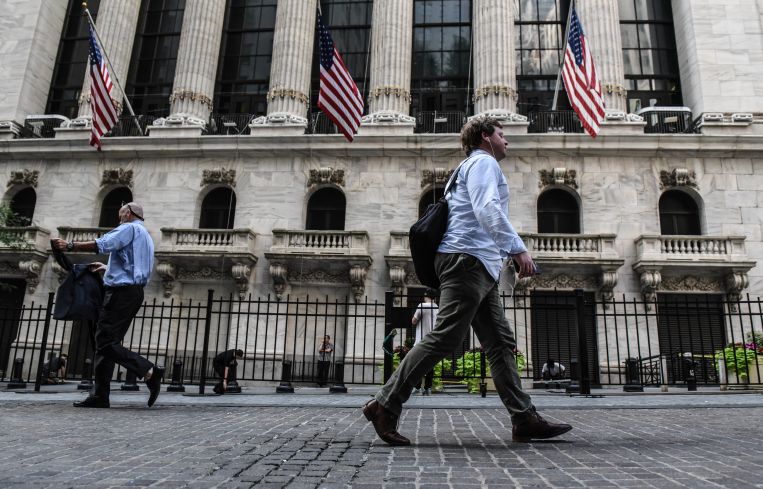New York Stock Exchange Threatens to Leave NYC Over Transfer Tax
By Rebecca Baird-Remba February 10, 2021 3:35 pm
reprints
The president of the New York Stock Exchange (NYSE) claims that she may be forced to move trading operations to a more tax-friendly locale if the state legislature imposes a stock transfer tax, according to an op-ed published yesterday in The Wall Street Journal.
As many financial firms open new offices in states like Tennessee, Florida and Texas, NYSE President Stacey Cunningham argued that New York’s temple of commerce may follow suit if the stock transfer tax is passed. She pointed out that the securities industry generated 18 percent of state tax collections last year. However, that share could decline significantly if a new stock transfer tax drives firms away from the city.
“The NYSE understands what COVID-19 has done to New York,” Cunningham wrote. “Our headquarters are in Manhattan. Most of our employees live in the region. We own homes, eat at restaurants, and pay our taxes in New York. We all want the city and state to emerge from the pandemic stronger than ever. That’s why we oppose the return of the stock-transfer tax. The last thing we want to do is leave a place we love, especially because of a flawed policy.”
The stock transfer tax is not a new concept. It originally took effect in 1905 and was effectively eliminated in 1981 when the state instituted a 100 percent rebate on the tax. The Citizens Budget Commission recently found that if the transfer tax had been reinstated last year, it would have generated $4 billion, significantly less than advocates’ annual projections of $13 billion in potential tax revenues.
The idea of the transfer tax is also somewhat outdated. The levy only applies to trades that occur in New York state. With most stock trades happening online, it can be difficult to tell where a transaction occurred. Most of the NYSE’s servers are already located outside of the city in Mahwah, N.J.
Last fall, when New Jersey threatened to levy its own stock transfer tax, the stock exchange processed a small percentage of its trades on its servers in Chicago, just to demonstrate that it could do so. Two other exchange operators, Nasdaq and Cboe Global Markets (CBC), also said they would leave New Jersey if the state instituted the tax.
And the tax would not only affect traders and hedge funders. Both CBC and Cunningham pointed out that it would raise the cost of investing in index funds for retirement or a child’s college education.
New York Gov. Andrew Cuomo’s office also seems hesitant about reinstating the stock transfer tax. During a January press conference, state budget director Robert Mujica noted, “If we increase the tax like that, you mobilize people, potentially just move your transactions and your servers to another part of the country where those taxes don’t exist.”
The state Senate and assembly are currently considering several proposals to either repeal or roll back part of the rebate on the transfer tax. Brooklyn State Sen. Zellnor Myrie, for example, introduced a bill that would decrease the rebate from 100 percent to 60 percent, and place the revenue into a general housing and economic development fund. Another proposal would repeal the rebate completely and dedicate the revenue to a variety of sources, including the Metropolitan Transportation Authority and specific infrastructure funds for roadways, bridges and water systems.



